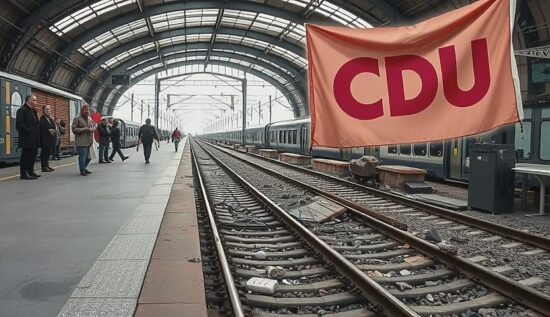It’s happening again. The CDU is presenting old wine in new skins in its election program. The railway is to be dismantled and its parts privatized. Infrastructure and transport are to be separated. The rail network is to be transferred to a federal-owned GmbH, with the federal government retaining control. The competition in transport is expected to solve existing problems.
The underlying idea is not significantly different from the ideas of privatizing the railway of the past decades: if there is no money for necessary investments, it is believed that changing the organizational form will make more money – not just by the CDU.
The railway is in a poor state, a fact that is not in dispute. Everyone agrees on that. However, there are different opinions on how to address the issue. The CDU wants to split the railway after the election. This would supposedly allow for the rectification of the defects. More competition is expected to rectify the issue – somehow.
The EVG, the railway trade union, is opposed and has already called for a first protest against the CDU’s plans. It needs more and, above all, continuous investments.
“What it really needs is permanent more investments in the rail infrastructure to break down the wear and tear that has built up over decades” said union chief Burkert. Burkert sees a great guilt for the state of the railway by the CDU: “Three Union transportation ministers are largely responsible.”
Even the current transportation minister does not see the dismantling of the railway as the solution. The CDU is offering simple solutions for complex problems, writes Volker Wissing (independent) on X. He is in agreement with the criticism of the trade union. The problem is the infrastructure that has been worn out due to lack of investment.
The railway announced in November that it would have to forgo the digitalization of the rail network for the time being. The money previously allocated for digitalization is now to be used for the renovation of the main lines.
Earlier, the proposal was made that the ICE trains should in the future operate at reduced speeds and the timetable would be adjusted accordingly. This is intended to address the problem of delays.
Britain was a pioneer in the privatization of the railway. The promise was that the private sector would make the railway operation simpler, better and more efficient. The opposite happened. Britain is now planning to re-nationalize the railway.





